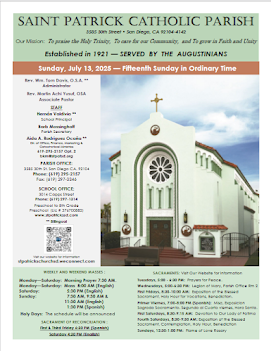|
Having been for years sympathetic to fluid borders
between countries, I found myself intrigued when I saw the title "In Praise of Borders." Author Peter Hitchens gave me a deeper appreciation for strong
borders—some natural, some created—because they tend to preserve the uniqueness of the people
on each side of them.
A world without differences would be a world without any true character or any true freedom, since the planet is far too big a community for people to be effectively unselfish in it. Without borders, we would dwell in a global parking lot. A reasonable love of where you live, its customs, landscape, language, and humor, is the basis for all other communal loves.
A truly multicultural world would become unicultural,
where less and less would distinguish one region from another. This, of course, is not a realistic
possibility—the world is a big place after all! But it does accent the point that cultures retain their
uniqueness in large part because of borders.
This tells us little about when and where we should
make borders more porous or more impervious. I happen to believe—with proper regards for national
security and assimilation—that we in the US would do well to have a more porous southern border, if for
nothing else, to give people the opportunity to escape poverty or drug violence (which wreak havoc in so many
countries to the south). But regardless of one's views on that specific issue, this article gives both pause for
thought and not a little delight.
| |
|
Speaking of multicultural phenomena: Here is an
example of how it might do the US white church some good to be confronted with Christians of other ethnicities.
Apparently, this trend continues:
Almost every Christian denomination in the U.S. shows signs of growing diversity as white Christians, once the majority in most mainline Protestant and Catholic denominations, give way to younger members, who tend to be of different races, according to a study released Wednesday (Sept. 6) by the Public Religion Research Institute.
Forgive me for dabbling in what could be a
stereotype, but when I've visited non-white churches—especially those composed of recent
immigrants—I have usually been humbled by the depth and devotion of the church members. At such
moments, I recall the Bible's observations about how wealth and comfort tend to sap religious vitality. And
that's when I suspect that the Bible may be talking about me.
| |
|
More on the cross-cultural front: I've mentioned
this topic before, but I thought this piece in the Time Literary Supplement was a nice rehearsal of why we absolutely
need to practice cultural appropriation in literature. There are, of course, cheap, sensational, and exploitive
ways to delve into other's culture and race. Then again,
It is hard to think of a well-read, disinterested person breaking off from Anna Karenina or Heart of Darkness or A Passage to India or The Sound and the Fury or The Grass Is Singing, to pen a letter of outrage to author or publisher. If the art is good, it justifies its own creation. If bad, it predicts its own oblivion. Eric Clapton might be guilty of cultural appropriation for having devoted a lifetime to the blues, but isn't the world better for it? | |
|
Speaking of a completely different culture: For international "Talk Like a Pirate Day," CT ran an interview with Stephen Berry, author of A Path in the Mighty Waters, "about religion, seafaring, and, of course, pirates"! It's mostly about the former but an interesting read nonetheless.
| |
Grace and peace,
| |
More from Christianity Today
Jessica Leep Fick: Let's Rewrite the Rules for Women's Evangelism
How Do You Solve a Theological Problem Like Maria?


























No comments:
Post a Comment